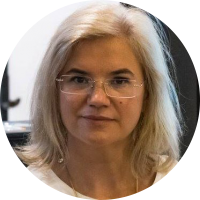Jean Monnet Module: Patterns of Europeanization in Central and Eastern Europe
Primary tabs
The Jean Monnet Module on Patterns of Europeanization in Central and Eastern Europe focuses on a debated, yet insufficiently explored, topic in European studies, namely the mechanisms of Europeanization in the “newer" member states. This becomes of topical importance in the current context, which places the EU under multiple pressures (i.e. the conflict in Ukraine, the “refugee crisis”, populist discourses and extremist movements) that impact upon how citizens relate to the EU and to the benefits of European integration. This urges academics in the field of European studies to propose projects that can stimulate the feeling of belonging to the EU and resurrect the trust in the European project.
The Module is based on the tacitly acknowledged fact that the “younger” member states, such as Romania, undergo a European integration process that is inherently influenced by both their recent history and current geopolitical position. However, most of the teaching, debates, and research, on Europeanization employ the concepts and theories developed by scholars in Western and Northern EU, thus matching the explanatory requirements and integration logic of those regions. Teaching, debates, and research on the Europeanization of CEE countries is rather scarce.
The Module will be dedicated to students enrolled at the MA in Communication and EU Affairs, being hosted by the Center for EU Communication Studies (CECS). This Module builds on an extensive study drafted by CECS fellows and Institute for European Studies (Free University of Brussels) specialists, focusing on the qualifications and competencies required for university graduates to improve their access to the European job market, and, more specifically, to professions dealing with EU Affairs. The Module adds academic value through several key elements: it helps fostering and promoting the idea of European integration in a contextualized manner, adjusted to the patterns of Europeanization in CEE, by focusing on both core fields (i.e. Europeanization) and corollary notions (i.e. public opinion, EU identity); it creates new teaching and debating activities, which strengthen the new “EU Affairs expert” academic qualification that was launched by our university in Summer 2016, through the Master in Communication and EU Affairs; it promotes some transversal competences deemed essential for an EU affairs specialist, such as communication, team work, negotiation, conflict management, or leadership; it promotes new teaching methods (i.e. blended learning, simulations, debates); it supports our university in training specialists who will actively contribute to preparing Romania’s Presidency of the Council of the EU scheduled for 2019; it engages civil society, policy-makers, and academics in Romania and other CEE countries in fruitful debates on the benefits of Europeanization and on how these benefits could be best preserved and capitalized upon; it promotes transdisciplinarity and internationalization by creating opportunities for participation in joint activities for scholars in CEE (i.e. academic conferences and research).


